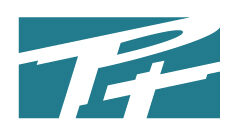The chatter about a looming recession in 2024 is gaining traction. Economic indicators are flashing warning signs, and it’s essential to understand what’s at play. Let’s break it down.

Experts aren’t united in their predictions, but many alarm bells are ringing. Some economists forecast an economic downturn due to high consumer debt levels and geopolitical tensions. Others point to more optimistic signs, like strong employment rates. Either way, it’s wise to stay informed.
Looking back at history, we can learn a lot. The economic cycles of the past often show patterns that may give us clues about the future. For example, the 2008 financial crisis and the hardships of the early 2000s tech bubble burst provide context on how recessions develop and how businesses are affected.
Possible triggers for a recession in 2024 could range from unexpected global events to persistent economic stresses. Trade wars, pandemics, and political instability can all play significant roles in tipping the scales.
Businesses, whether small mom-and-pop shops or large corporations, need to stay vigilant. Each size and type of business will feel the effects differently, but preparation is universal. Understanding these risks can help you tailor strategies to weather the storm.
Businesses That Thrive During Recessions
In stressful economic times, certain businesses tend to hold steady or even flourish. Some industries have a knack for sailing through rough waters. Understanding what makes these businesses recession-proof is key.
Companies that provide essential services and goods usually fare well. Think of utilities, healthcare, and grocery stores. People always need food, medical care, and basic utilities, no matter what’s happening in the economy. Their demands remain steady regardless of external conditions.
Businesses offering affordable entertainment options often see a boost. Streaming services, low-cost dining options, and even DIY home improvement stores can see increased foot traffic and sales as people look for cost-effective ways to enjoy themselves at home.
Some innovators and forward-thinkers leverage recessions to their advantage. Companies that pivot quickly, adapting to new market demands, are often the ones that come out on top. For example, tech firms that enhance productivity or provide crucial digital solutions can thrive. Additionally, discount retailers have historically done well as consumers look to stretch their dollars further.
A real-world example is the surge in popularity of thrift stores and second-hand marketplaces during past downturns. These businesses offer budget-friendly alternatives, and in times of economic distress, they aren’t just surviving; they’re booming.
Finally, we can learn valuable lessons from businesses that adapted and succeeded in previous recessions. During the 2008 financial crisis, many firms focusing on affordable luxury, such as fast-casual dining restaurants and budget-friendly clothing stores, not only survived but grew.
Preparing Your Business for a Recession in 2024
Getting ready for a potential recession is all about being proactive. Start with a thorough financial health check to see where you stand. Look at your cash flow, debt levels, and overall financial stability. Knowing your financial position can help you make smarter decisions.
Diverse income streams are a safety net during tough times. If one revenue source dwindles, others can help keep you afloat. Consider branching out into new markets or offering different products and services that might attract new customers.
Client relationships are invaluable. Strengthen these bonds by offering exceptional service and staying engaged with your customers. Loyal clients are more likely to stick around, even when the economy goes south, and they can provide a steady revenue stream.
Investing in essential technology can boost efficiency and cut costs. Automation tools, customer management systems, and online sales platforms can streamline your operations. While it may seem counterintuitive to spend on tech when you’re trying to cut costs, the long-term benefits often justify the investment.
Operational efficiency is key. Review your processes, look for areas of waste or inefficiency, and make the necessary adjustments. Leaner operations mean you’re better equipped to handle downturns without sacrificing the quality of your offerings.
Crafting a solid contingency plan is your final step. Identify potential risks and develop strategies to mitigate them. Whether it’s securing additional lines of credit or forming strategic partnerships, having a plan can give you the confidence to weather any storm.
Strategies to Ensure Your Business Survives a Recession
Effective cost management is vital for business survival. Start by identifying non-essential expenses and cut them down. Evaluate each expense line-by-line to see where you can save. Every dollar saved is a dollar that can go towards keeping your business running.

Adapt your marketing strategies to focus on value and maintain a connection with your customers. Customers may be tighter with their spending, but they still appreciate brands that treat them well and offer genuine value. Highlight the benefits and affordability of your products or services. Social media, email marketing, and content marketing can be cost-effective ways to stay engaged.
Customer retention should be a top priority. Acquiring new customers can be more expensive than keeping existing ones. Loyalty programs, personalized service, and consistent communication can keep your current client base satisfied and loyal.
Embrace digital transformation. If you haven’t already, now’s the time to shift more aspects of your business online. Whether it’s expanding your e-commerce presence or adopting new digital tools, leveraging technology can open new revenue streams and increase efficiency.
Explore new market opportunities that can offer additional revenue streams. This could mean pivoting to meet new demands, offering new products, or even expanding to new territories. Keep an eye out for market gaps that your business could fill.
 Staying agile and adaptable is crucial. The business landscape can change rapidly during a recession, and flexibility can make all the difference. Be ready to pivot your strategies and operations as needed to respond to new challenges and opportunities.
Staying agile and adaptable is crucial. The business landscape can change rapidly during a recession, and flexibility can make all the difference. Be ready to pivot your strategies and operations as needed to respond to new challenges and opportunities.
Instantly boosting your health, energy and well-being
Here’s a little transparency: Our website contains affiliate links. This means if you click and make a purchase, we may receive a small commission. Don’t worry, there is no extra cost to you. It’s a simple way you can support our mission to bring you quality content.
